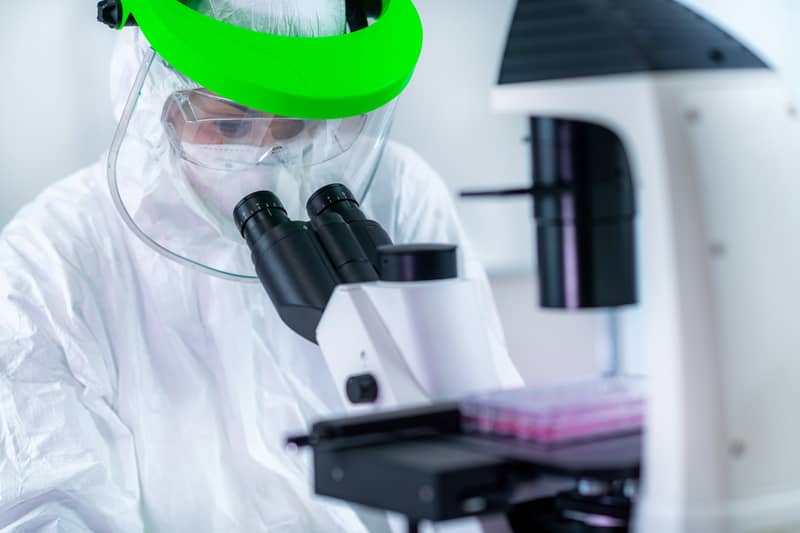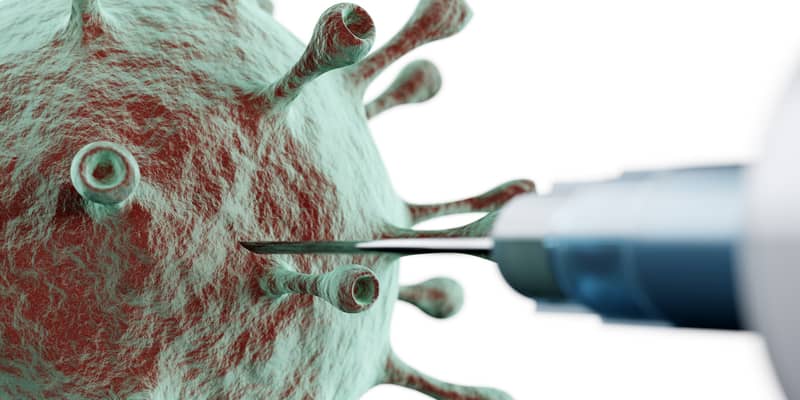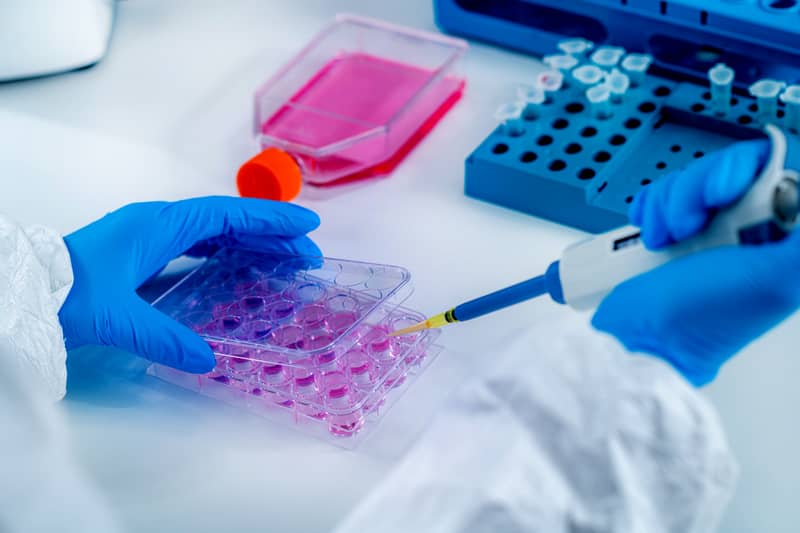New Covid vaccine is more than 90% effective — ‘A great day for science an even greater day for humanity’
On Monday, Pfizer and BioNTech announced their covid vaccine was more than 90% effective in preventing Covid-19 among those without previous infection data, hailing the discovery as a great day for science and humanity.”
“At the end of the tunnel, I think we can see light,” Dr. Albert Bourla, Chairman and CEO of Pfizer, told CNBC’s Meg Tirrell on “Squawk Box.” “I think this is potentially the most critical medical development in the last 100 years, if you consider the effect this would have on public health, the global economy.”
The news comes as drug makers and research centers scrambled to provide a safe and reliable vaccine to help bring an end to the pandemic of coronavirus that has taken more than 1.2 million lives around the world.
Scientists expect a coronavirus vaccine that is at least 75 percent effective, although Dr. Anthony Fauci, a White House coronavirus counselor, has said that it would be appropriate to have one that is 50 percent or 60 percent effective.
As investors cheered the news, U.S. stock futures skyrocketed. Futures gained 1,646 points on the Dow Jones Industrial Average, indicating an opening gain of more than 1,630 points. The Dow was up more than 1,000 points by late morning, an increase of 3.7 percent.

In premarket trading, airline and cruise company stocks jumped, with some stocks growing between 20 percent and 30 percent. The global health crisis has impacted both sectors greatly as travel restrictions and a resurgence of outbreaks continue to hurt demand.
The findings of Pfizer were based on the first interim efficacy review of a phase three clinical trial performed by an external and independent Data Evaluation Committee. To ensure the safety of patients, the independent advisory committee oversees U.S. clinical trials.
Among the 43,538 participants in the trial, the research examined 94 confirmed Covid-19 infections. The case split between vaccinated individuals and those who got a placebo showed a vaccine effectiveness rate of above 90 percent at seven days after the second dose, Pfizer and the German biotech affiliate of the U.S. pharmaceutical giant said.
This means that 28 days after the initial vaccination, which consists of a two-dose regimen, protection from Covid-19 is achieved. However as safety and additional data continue to be collected, the final vaccine efficacy percentage could vary.
A former FDA Commissioner and member of the board of Pfizer, Dr. Scott Gottlieb, told CNBC that the vaccine could be available for restricted use by late December and generally available by the third quarter of 2021.
“The initial proof of our vaccine’s ability to prevent COVID-19 is the first collection of findings from our Phase 3 COVID-19 vaccine trial,” Bourla said in a statement.
In our vaccine development program, we are hitting this important milestone at a time when the world needs it most with infection rates breaking new highs, hospitals approaching over-capacity and economies struggling to reopen,” Bourla added.”
With today’s coverage, we are a big step closer to having a much-needed breakthrough for individuals around the world to help put an end to this global health crisis. We look forward to sharing additional data on efficacy and safety produced in the coming weeks from thousands of participants.

Challenges about distributing the new Covid Vaccine
Roughly 42 percent of the worldwide participants in the trial had culturally and ethnically diverse backgrounds, Pfizer and BioNTech said, adding that no significant safety issues have yet been identified.
The businesses said they intended to send authorizations for emergency use to the U.S. Food and Drug Administration soon after they have two months of results, which is currently on schedule for the third week of November.
Pfizer and BioNTech plan to manufacture up to 50 million vaccine doses in 2020, and up to 1.3 billion doses in 2021, based on current estimates. Two doses per person are required for the vaccine. Although the firms did not take any money from the federal government for drug research and development, in July they signed a nearly 2 billion deal to provide the U.S. government with 100 million doses as part of the Operation Warp Speed of the Trump administration. That money helps with production and distribution.
Because of the need to store and transport them in supercooled containers, proposals to distribute hundreds of millions of coronavirus vaccines worldwide raise concerns about logistics and distribution in part.
A storage temperature of minus 94 degrees Fahrenheit is required for Pfizer’s vaccine. By contrast, Moderna has confirmed that it must store its vaccine at minus 4 degrees Fahrenheit.
The company is currently preparing to load suitcase-sized boxes on as many as two dozen trucks a day from distribution sites in Kalamazoo, Michigan, and Puurs, Belgium, allowing for approximately 7.6 million doses to be shipped daily to nearby airports.
The companies said they intend to submit data for scientific peer-review publication from the complete phase three trial, which began on July 27.
Vinh Director at BM international group commented on the ability to bring the new vaccine to Vietnam with all the difficulties regarding distribution. “fortunately, we are in a good position to help support the Vietnamese government to obtain the vaccine as quickly as possible due to having an experienced import & export team based out of the US and here in Vietnam.”
He then continued to say, “We will be keeping a close eye on the current situation in order to act quickly to ensure the people of Vietnam have access to the vaccine as quickly as possible”.
‘Let’s breathe deeply’

“From the U.S. For a Covid-19 vaccine to warrant approval, the FDA has set a threshold of 50 percent effectiveness. Dr. Peter Drobac, a public health physician and director of the Skoll Centre for Social Entrepreneurship at the University of Oxford, said via email that a 90 percent successful vaccine will be exceptional.
We would need to see that the complete findings are subject to independent analysis. Let’s take a deep breath, however, he added, this is very promising news.
In the first half of 2021, 12 to 18 months after Chinese scientists first identified the coronavirus and mapped its genetic sequence, U.S. officials and scientists are hopeful a vaccine to prevent Covid-19 would be ready.
For a method that usually takes about a decade for an efficient and secure vaccine, it’s a record-breaking time period. It took more than four years for the fastest-ever vaccine production, mumps, and was approved in 1967.
According to the Centers for Disease Control and Prevention, a more than 90 percent successful coronavirus vaccine will be about on par with one dose of measles vaccination, which is about 93 percent effective.
In contrast, the CDC claims an influenza vaccine decreases the risk of flu disease among the general population by between 40 percent and 60 percent.


0 comments